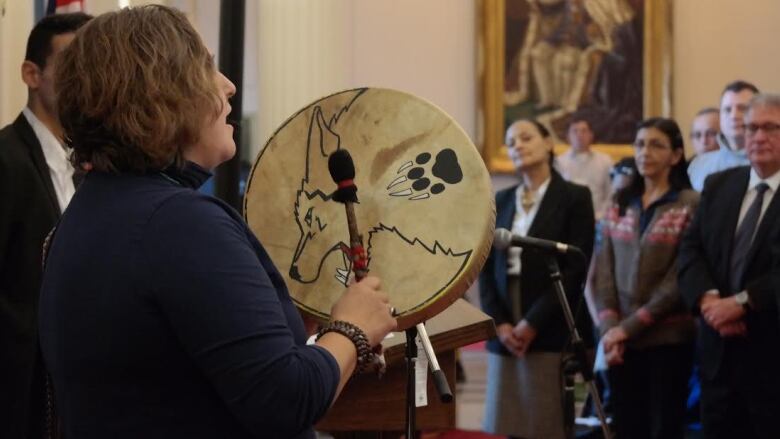Manitoba proclaims first-of-its-kind Restorative Justice Act
Cases handled in community, outside traditional court process

Manitoba has launched its Restorative Justice Act, which the province calls a Canadian first,to rehabilitate offenders through reconciliation with victims and the community at large.
"Restorative justice can provide a more appropriate resolution in many situations," Attorney GeneralGordMackintosh said in proclaiming the new legislation."Through a strong restorative justice system, we can help reduce future crimes, provide closure to victims and reduce some of the pressure on the traditional court system."
Under restorative justice, cases arehandled in the community, outside of the traditional court process, with afocuson the needs of the victims and the offenders, as well as the involved community, rather than on punishing the offender.
Victims, if they choose to participate, cantake an active role in the process, while offenders are encouraged to take responsibility for their actions.
"It's not about letting people off the hook" Grand Chief Sheila North Wilson used restorative justice herself. Says it helped her
—@chrisgloverCBC"[Offenders]work with community representatives and the victims of their crimes to repair harm that has been caused and make amends to the victim and the community," the news release stated.
The new actalso creates an advisory council made up ofcommunity and government representatives tooversee the implementation of a five-year strategy that includes:
- Creating a new nine-person prosecution unit to help significantly increase referrals to restorative justice programs.
- Funding new and expanded mentalhealth and drug courts.
- Working with North End residents for a North End Community Court.
- Supporting restorative justice programs on the Bloodvein First Nation, Portage la Prairie and Morden.
- Investing $320,000 to create restorative justice opportunities in the Westman and Parkland regions, and for Mtis residents of Winnipeg, including $10,000 for Candace House to help create a business plan to help delivervictim supports.
- Establishing a restitution recovery program to help victims collect court-ordered payments.
- Creating five restorative justice hubs throughout the province to support existing programs andco-ordinate services.
- Improving training and building awareness.
- Enhancing supports for victims throughthe entire process.
- Identifying supports for chronic, low-risk offenders.
"This new strategy will set the province on an innovative path to increase the use of restorative justice by expanding programs and services for victims, offenders and the community," said Mackintosh.
"The entire approach to restorative justice has to begin from the perspective of the victim.To succeed in the long term, we must make offenders more accountable, and better identify and address the root causes of an offender's criminal activity."
Mackintosh was joined by RCMPSupt. Paulette Freill, Manitoba Keewatinowi OkimakinakGrand Chief Sheila North Wilsonand ManitobaMetisFederation presidentDavidChartrand in proclaiming the act.
"The act and council are important steps forward in much-needed justice reform," said Kate Kehler, executive director of theSocial Planning Council of Winnipeg.
"Restorative justice is proven to provide resolution for victims of crime, accountability to those who commit crimes and context of the crime so the community can address the root causes."
Some restorative justice programs are already in use in Manitoba, including:
- Mediation services in Winnipeg, Brandon, Portage la Prairie and Morden.
- Justice committees in 45 communities with volunteers who hear cases that have been diverted from the traditional court process.
- Community justice programs and mediation services for indigenous and Mtis people through partnerships with Manitoba Keewatinowi Okimakanak (MKO), Manitoba Metis Federation, Southern Chiefs Organization and other agencies.












_(720p).jpg)


 OFFICIAL HD MUSIC VIDEO.jpg)
.jpg)



























































































